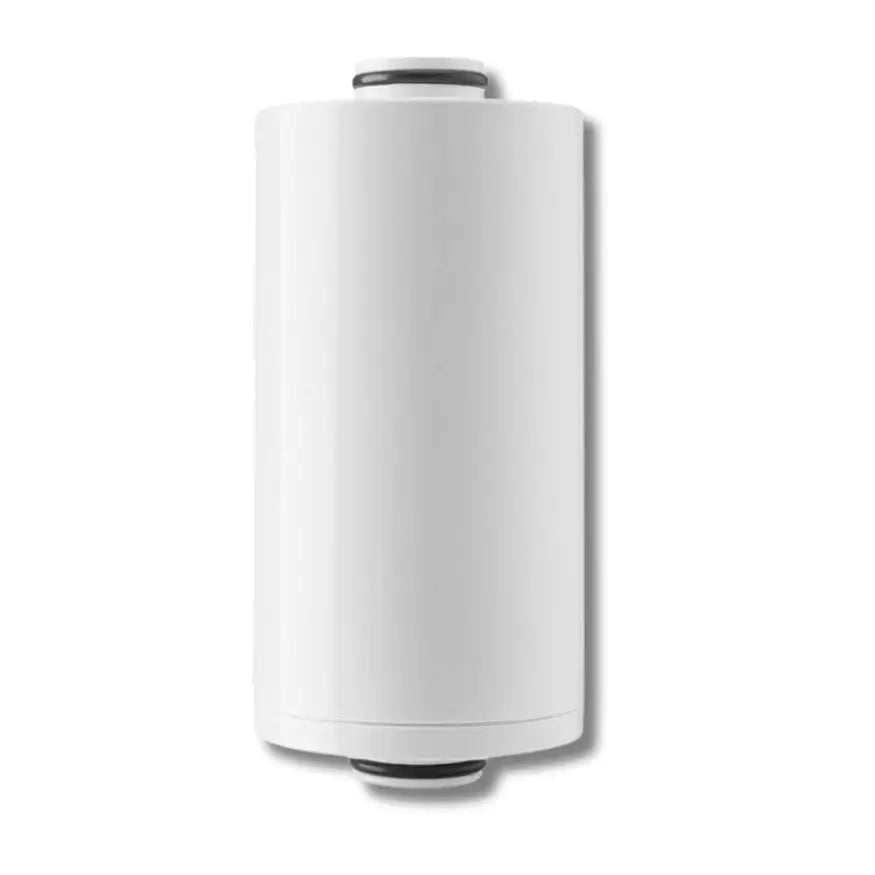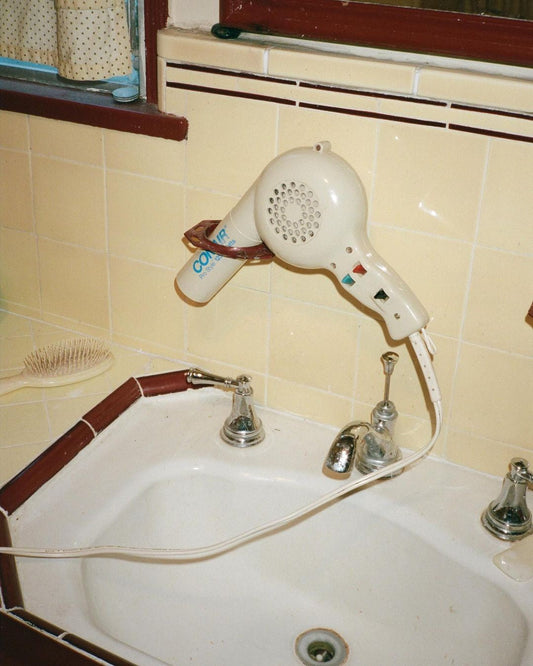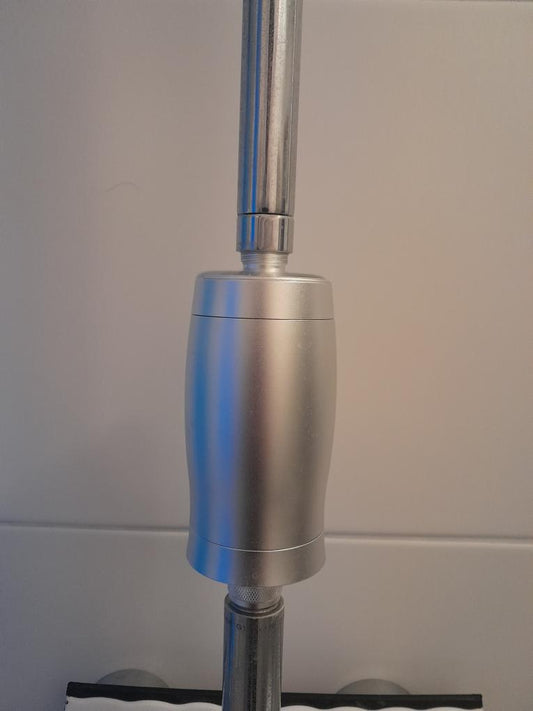TL;DR: Shower head filters are highly effective at reducing or removing common water contaminants like chlorine, chloramine, heavy metals, pesticides, and VOCs. This significantly improves the quality of your shower water, leading to healthier, softer skin and more vibrant, less damaged hair. They are easy to install and maintain, offering a simple solution to protect yourself from potentially harmful exposure during your daily shower.
What is a Shower Head Filter? Essential Protection for Your Daily Routine
A shower head filter is an ingenious yet simple device designed to intercept and remove undesirable substances from your shower water before it reaches your skin and hair. More advanced than basic sediment filters, these units typically contain multiple stages of filtration media engineered to target a range of chemical and physical contaminants commonly found in municipal and well water supplies. By attaching directly to your shower arm or being integrated into the showerhead itself, a high-quality filter ensures that the water cascading over you is significantly cleaner and gentler.
These specialized filters are specifically designed to handle the flow rate and temperature of shower water, effectively reducing harmful elements such as chlorine, chloramine, heavy metals, agricultural pesticides, and volatile organic compounds (VOCs). Investing in a shower head filter is investing in the health and appearance of your skin and hair, mitigating the drying and damaging effects of unfiltered water. To understand more about what a shower head filter is and why it's necessary, learn about its role in removing hazardous particles.
Why the Quality of Your Shower Water Matters Critically for Skin and Hair Health
Many people meticulously care for their skin and hair using premium products, but overlook a fundamental element that can counteract all their efforts: the water itself. Unfiltered shower water, while safe for drinking according to municipal standards, can be surprisingly harsh. The chemicals added for disinfection and contaminants picked up along the distribution system can have a significant negative impact on your body's largest organ (skin) and your hair. Filtered showerheads can indeed improve skin and hair health by maintaining natural moisture levels.
Exposure to these impurities can lead to the stripping of natural protective oils, disrupting the delicate pH balance of your skin and scalp, and damaging the protein structure of your hair strands. This often manifests as uncomfortable dryness, itching, redness, and irritation of the skin. Hair can become brittle, frizzy, dull, and more prone to breakage. For individuals already dealing with sensitive skin or chronic conditions such as eczema, psoriasis, or dermatitis, unfiltered water can trigger flare-ups and exacerbate symptoms, causing significant discomfort and frustration. Many dermatologists recommend shower filters for sensitive skin or allergies to reduce irritation. Shower filters can alleviate common skin issues like eczema and reduce hair brittleness by filtering out harsh chemicals.
Martina, a Nordisk Renhet customer, experienced this firsthand, stating, "My eczema improved dramatically after using a shower filter." Her testimonial highlights a common benefit reported by users who find relief from persistent skin issues simply by removing irritants from their shower water. A quality shower filter can protect your skin from harsh chemicals like chlorine and chloramines, reducing dryness and irritation. Protecting your skin and hair from these daily chemical onslaughts allows them to retain their natural moisture, strength, and vitality, leading to a noticeable improvement in feel and appearance.
Understanding What's Really in Your Environment: Common Water Contaminants
Tap water, while treated, is not always pure. A variety of contaminants can find their way into your shower water, each with the potential to negatively impact your health and appearance. Knowing what these substances are and where they originate helps underscore the importance of filtration. To understand what's really in your shower water, exploring the hidden contaminants is key.
Below is a table summarizing key contaminants:
| Contaminant | Source | Primary Effect on Skin/Hair | Potential Long-Term Consequence |
|---|---|---|---|
| Chlorine | Municipal water disinfection | Dries out skin and scalp, damages hair proteins, fades hair color | Chronic dryness, increased sensitivity, accelerated aging of skin and hair fibers |
| Chloramine | Alternative municipal water disinfectant | Similar to chlorine but can be more persistent, causes irritation and dullness | Persistent skin conditions, reduced hair elasticity and shine |
| Heavy Metals (e.g., Lead, Mercury, Iron, Copper) | Corroding pipes (especially older plumbing), industrial runoff | Accumulate on skin and scalp, cause oxidative stress, clog pores, weaken hair follicles | Premature skin aging, hair thinning, breakage, scalp issues, potential systemic health risks over time |
| Pesticides & Herbicides | Agricultural and residential runoff entering water sources | Can cause skin sensitivity, irritation, and potential allergic reactions | Potential endocrine disruption, long-term health effects from exposure |
| VOCs (Volatile Organic Compounds) | Industrial discharge, solvents, plastics in plumbing | Vaporize easily in hot showers leading to inhalation, can irritate respiratory system and skin | Respiratory issues, headaches, potential contribution to skin sensitivities |
Chlorine and chloramine are added to kill bacteria, which is crucial for public health, but they are harsh on organic matter like your skin and hair. Shower filters can help reduce exposure to disinfection byproducts, which have been linked to certain health risks. Heavy metals like lead, mercury, and cadmium, often leached from older plumbing systems, can build up on the scalp, interfering with hair growth and leading to weakness and breakage. Heavy metal contamination can indeed affect shower water safety. Pesticides and herbicides can leach into water sources from agricultural and urban runoff. VOCs can originate from various industrial sources or even be byproducts of water treatment reacting with organic matter. While the concentrations of these contaminants may be within regulated limits for drinking water, exposure through showering (especially inhalation of vapors in steam) can still pose risks and cause undesirable effects on your skin and hair. Shower head filters can reduce exposure to chlorine, heavy metals, and other contaminants, leading to healthier skin and hair.
The Science Behind the Clean: How Multi-Stage Filtration Technology Works
Effective shower head filters don't just rely on a single method; they employ a combination of specialized filtration media to tackle the diverse range of contaminants found in water. The synergistic effect of these materials ensures comprehensive purification adapted for the unique conditions of showering (varying temperatures and flow rates). Understanding how shower filters work, utilizing activated carbon and other media, is key to appreciating their effectiveness.
Key filtration media commonly found in high-performance shower filters include:
- KDF-55 Media: Standing for Kinetic Degradation Fluxion, this is a high-purity alloy of copper and zinc. KDF works through a process called Redox (Oxidation-Reduction). In this reaction, electrons are exchanged between the KDF media and contaminants like chlorine, chloramine, and heavy metals (such as lead, mercury, and iron). This process converts these harmful substances into benign ones. For example, free chlorine is converted into harmless, water-soluble chloride. Dissolved heavy metals like lead, mercury, copper, and iron are reduced to their elemental forms and plated out onto the surface of the KDF media, effectively removing them from the water stream. Purity meets performance with KDF filtration in shower water. KDF also inhibits the growth of bacteria, algae, and fungi within the filter cartridge, which helps maintain filter hygiene and longevity.
-
Calcium Sulfite: This compound is exceptionally effective at removing chlorine, particularly in hot water where activated carbon's performance can be reduced. Calcium sulfite reacts rapidly with chlorine, converting it into harmless calcium sulfate and chloride ions. This quick reaction time makes it ideal for the high flow rates typical of showers, ensuring maximum chlorine removal even during short contact times. For more details, see how Calcium Sulfite shower filters provide clean water for healthier skin and hair.
- Granular Activated Carbon (GAC): Made from organic materials like coconut shells or coal, activated carbon has a vast internal surface area due to its porous structure. It works through a process called adsorption, where organic molecules like VOCs, pesticides, herbicides, industrial solvents, and chemicals that cause unpleasant odors and tastes are attracted to and trapped on the surface of the carbon granules. While less efficient for chlorine in hot water than KDF or Calcium Sulfite, Granular Activated Carbon (GAC) filters are crucial for removing a wide array of synthetic organic chemicals and improving water clarity and odor.
By layering these different media, a high-quality filter ensures that water passes through stages designed to neutralize or capture various types of impurities, delivering significantly cleaner water to your showerhead.
Understanding the Distinction: What a Shower Head Filter Doesn’t Do (It's Not a Water Softener)
It is a common misconception that shower head filters soften water. While filtered water can feel better on your skin and hair because drying chemicals are removed, this is different from water softening. Water hardness is caused by high concentrations of dissolved minerals, primarily calcium and magnesium ions, which are naturally occurring in many water sources. These minerals react with soap to create soap scum and can leave a residue on skin, hair, and surfaces. Understanding how hard water affects your skin and hair highlights the need for specific solutions.
Water softeners use a process called ion exchange, typically involving resin beads, to remove calcium and magnesium ions and replace them with sodium or potassium ions. Shower head filters, on the other hand, are designed to filter out contaminants like chlorine, heavy metals, and organic chemicals using media like KDF, calcium sulfite, and activated carbon. While some filter media might slightly impact certain minerals, a standard shower head filter does not have the capacity or mechanism to significantly reduce water hardness in the way a dedicated water softener does. Therefore, while a shower filter will reduce the negative impacts of chemical irritants, it will not eliminate the effects of hard water minerals like soap scum or mineral buildup.
Making the Right Choice: What to Look For (and Look Out For) in a Shower Head Filter
Navigating the market for a shower head filter can be challenging given the numerous options and varying claims. Knowing what constitutes a reliable filter versus one that might disappoint is crucial. For a complete guide to shower head filters, including benefits, types, and effectiveness, consult expert resources. Experts also offer recommendations on the best shower filters for healthier skin and hair.
-
Green Flags: Indicators of Quality and Effectiveness
- Verified Contaminant Removal: Does the manufacturer provide specific data on which contaminants are removed and the percentage of removal? This should ideally be supported by independent testing.
- Independent Testing and Certification: This is paramount. Look for certifications from reputable third-party organizations like NSF International (specifically NSF/ANSI Standard 177 for shower filters, which tests for chlorine reduction) or IAPMO. These certifications mean the filter has been tested by an unbiased body and performs according to established standards. Independent testing shows that shower filters can effectively reduce chlorine and sediment.
- Long-Lasting Cartridges: A good filter cartridge should have a reasonable lifespan, typically measured in months or gallons of water filtered, offering value and convenience. Filters that require very frequent replacement can be costly and inconvenient.
- Quality of Filtration Media: Does the product description specify the type and quality of media used (e.g., high-purity KDF, specific type of activated carbon)? A combination of media tailored for shower water is usually a good sign.
- Verified Contaminant Removal: Does the manufacturer provide specific data on which contaminants are removed and the percentage of removal? This should ideally be supported by independent testing.
-
Red Flags: Warning Signs of Potential Ineffectiveness
- Over-Exaggerated Claims: Be wary of filters claiming to remove virtually all contaminants or provide miraculous health benefits without providing specific data or certifications.
- Lack of Certifications or Independent Testing: If a manufacturer doesn't subject their product to third-party testing, there's no objective way to verify their performance claims.
- Very Short Lifespan or Vague Replacement Guidelines: Filters that need changing every few weeks may indicate poor efficiency or low-quality media, or the media may be quickly exhausted.
- Unclear or Missing Information About Filtration Technology: A lack of transparency about how the filter works or what media it uses can be a red flag.
Taking the time to research and choose a filter with verified performance ensures you are making a worthwhile investment in your skin, hair, and overall shower experience. Explore our trusted Nordisk Shower Head Filter, designed with these quality indicators in mind.
Seamless Integration: Installation & Upkeep Made Simple
One of the most appealing aspects of shower head filters is their user-friendly design. Installation is typically very straightforward, requiring no specialized tools or complex plumbing work. Most filters are designed to simply screw on between your existing shower arm (the pipe coming out of the wall) and your showerhead, requiring just a universal adapter for easy installation. The process usually takes less than two minutes, allowing you to start enjoying filtered water almost immediately.
Maintaining your shower filter primarily involves replacing the filter cartridge on a regular schedule. The lifespan of a filter cartridge is determined by factors such as the initial water quality and how much water is used. A common benchmark for replacement is approximately every six months or after filtering a specific volume of water (e.g., 13,000 liters or around 3,400 gallons). Adhering to the recommended replacement schedule is vital because, over time, the filtration media become saturated with captured contaminants and lose their effectiveness. Many providers, including Nordisk Renhet, offer convenient subscription services for filter replacements. This ensures you receive a fresh cartridge automatically when it's needed, guaranteeing continuous access to clean, filtered shower water without having to remember to reorder, providing ultimate peace of mind.
Exploring Comprehensive Solutions: Complementary Alternatives
While a shower head filter is a highly effective point-of-use solution for improving the water quality in your shower, addressing water quality throughout your entire home offers broader benefits. For the most comprehensive protection against a wide range of contaminants in all your water sources – including faucets, toilets, and appliances – consider a Full Home Filtration System. These systems are installed where the main water line enters your house, filtering all the water used in your home. This not only provides filtered water for showering but also for drinking, cooking, laundry, and protects your plumbing and appliances from sediment and chemical buildup, potentially extending their lifespan and improving efficiency. While a larger investment, a full home system offers the most complete approach to ensuring clean water for every need. For a combined approach to enhancing your shower experience, consider the Nordisk Wellness Kit.
The Proof is in the Experience: User-Reported Benefits
Beyond the technical specifications and contaminant removal data, the real impact of using a shower head filter is best described by those who have experienced the transformation in their daily shower routine and their skin and hair health. Many users report significant, noticeable improvements within a relatively short period. You can find benefits of filtered showerheads for healthier skin and hair documented by users.
As Emma, a satisfied user, shares,
"My hair feels softer and my skin irritation reduced within weeks of using Nordisk Renhet's shower filter."
Commonly reported benefits include:
- Softer, more manageable hair that is less prone to frizz and breakage. The importance of a shower filter for hair & scalp health is often highlighted by restored moisture and reduced breakage.
- Skin that feels more hydrated, less dry, itchy, and irritated. Shower filters can improve your skin and hair by reducing acne and irritation. Shower filters are particularly beneficial for people with eczema, psoriasis, or color-treated hair.
- Reduced redness and flare-ups for individuals with sensitive skin or conditions like eczema and psoriasis. Reducing exposure to harsh tap water chemicals can help maintain the skin barrier and reduce dryness.
- Improved lathering of soaps and shampoos, meaning you may need less product.
- A noticeable reduction in the chemical smell often associated with chlorinated water.
- Hair color that lasts longer without fading as quickly.
- A generally more pleasant and refreshing shower experience. Filtered shower heads improve hydration and shine while preventing dryness and damage. Shower filters lead to softer skin and healthier, bouncier hair. Many users report less skin irritation and shinier hair after installing a shower filter.
These user experiences consistently highlight the positive tangible changes that result from removing harsh chemicals and contaminants from shower water, making the investment in a quality shower filter a valuable step towards better personal care. To understand the full shower filter benefits, exploring user testimonials is valuable.
FAQs
Do shower head filters really work? ▾
Yes — when used correctly, high-quality shower head filters employ multi-stage filtration to effectively reduce chlorine, chloramine, heavy metals, pesticides, and odors from your shower water. This reduction in harsh chemicals and impurities can lead to less skin irritation, softer feeling hair, and more hydrated skin. However, it's important to note that they primarily filter contaminants and do not remove hardness minerals like calcium or magnesium.
Can a shower filter help with eczema or dry skin? ▾
Yes. Many users, particularly those with sensitive skin or conditions like eczema and psoriasis, report significant improvements in dryness, itching, and overall sensitivity after switching to a filtered shower. By effectively removing chlorine, chloramine, and other potential irritants present in unfiltered water, a shower filter helps protect your skin’s natural moisture barrier and reduces the factors that can trigger flare-ups.
What does a shower head filter remove? ▾
Depending on the specific filtration media used in its design, a high-quality shower head filter can effectively remove or significantly reduce contaminants such as chlorine, chloramines, various heavy metals (like lead, mercury, iron, and copper), volatile organic compounds (VOCs),





